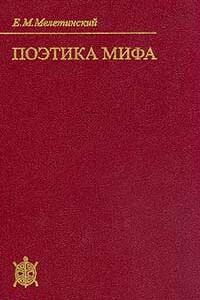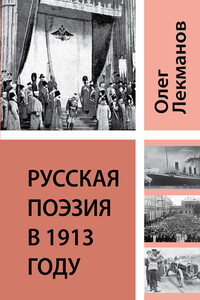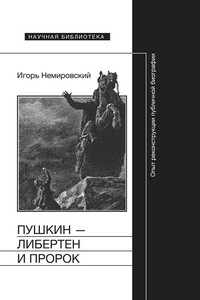Чосер Дж. 70, 71, 72, 247, 250 «Кентерберийские рассказы» 70, 71, 72, 250 «Чудесный рог мальчика» 174
Чэн Сюань 36
Чэнь Хун 36
Шаль Р. 140, 152—156, 159, 254 «Знаменитые француженки. Истинные истории» 152, 156
Шамиссо А. фон 199
Шарпантье Ж. 159
Шатобриан Ф. Р. де 199
Шекспир В. 109, 116, 220 «Двенадцатая ночь» 109 «Венецианский купец» 60 «Король Лир» 53 «Много шума из ничего» 109 «Отелло» 115 116 «Ромео и Джульетта» 109
Шлегель А. 3
Шлегель В. 3
Шпильгаген Ф. 3
Штифтер А. 3, 215, 258 «Высокий лес» 215 «Кондор» 215 «Полевые цветы» 215 Шторм Т. 3, 202, 215—221, 223, 224, 239, 258 «В замке» 216 «Всадник на белом коне» 218 «Ганс и Гейнц Кирх» «Господин советник» 217 «Зеленый лист» 216, 217 «Из заморских стран» 216, 219 «Иммензее» 215—217 «К летописи рода Гризхус» 216 «Карстен-попечитель» 217 «Лесной уголок» 216, 217, 219 «Мастер Петрушка» 216 «Молчание» 217 «Сыновья сенатора» 217, 219 «Тихий музыкант» 216 «Университетские годы» 216, 217 «Aquis submersus» 216
Штриккер 69
«Шукасаптати» 30, 31
Шэнь Цзыцзы 36
«Цветы и жития философов» 63 Цзи Юнь 50 Цзян Фан 36
Цицерон 51
Эзоп 50
Эйхендорф И. фон 174, 184, 220, 255 «История одного бездельника» 174, 220 «Осеннее колдовство» 174
Эккерман И. П. 3
Эленшлегер 174
«Эстула» 67
Этьенн А. 122
Юань Мэй 50
Юань Цзяо 36
Юань Чжэнь 36, 39
Яков Ворагинский 70, 119 «Золотая легенда» 70
Я-чжи 36
Summary
E. M. Meletinsky. The Historical Poetics of Novella. Novella originates from tale and anecdote. Its emansipation from tale is more characteristic of the West than of the East. This is particularly true of China where novella originated from mythological legend and retained an element of fantasy virtually throughout its history. In the West, an original synthesis of fairy tale and novella only occurred in the epoch of romanticism. In comparing tale and novella, it should be noted that however fantastic a tale may be its plot shows compulsory and recurrent life and ritual cycles of growth of the hero (rites of passage), and novella, despite its mundane character, claims to show miraculous things as is suggested by Chinese technical words and Goethe’s famous formula of “unheard-of event” and strikingly new things (cf. the etymology of the word ‘novella’). Anecdote is based on direct opposition and paradoxical stress. In the frame of composition and narrative a sharp turn of plot occurs after culmination and before denouement. The anecdotic core of novella often has a latent form. The anecdotic essence can be separated from the comic environment and, at later stages, it may even acquire sentimental and even tragic colouring. In such broad terms anecdotism intensifies the specifics of the genre of novella (in novellas of the Renaissance, and those by Kleist, Pushkin, Maupassant, Chekhov, O’Henry).
Novella is distinguished from novel and story by its brevity, and from short story and story by more complex structure. The brevity of novella intensifies the degree of concentration and symbolism used in it. Novella cannot incorporate a comprehensive “model of the world”, and thus there is a tendency to combine novellas in a single frame within which they complement each other.
There are two groups of folkloric pre-novellas — short narratives constituting realistic tales and anecdotes. On the one hand, there is interaction between these groups, and on the other, there is a relationship of complementarity between them. Shrewdness and wisdom of a hero in a realistic tale and shrewdness and trickstery of a hero in an anecdotic tale form alternatives. The same is true of realistic tales about cruel robbers and of anecdotic tales about cheerful and crafty thieves who arouse admiration or realistic tales about chaste and virtuous wives and anecdotic tales about adulterous, stubborn and wicked wives. The same system of oppositions is characteristic of folklore tradition and as concerns book tradition it is less prominent.
With reservation, realistic tale may be considered a product of transformation of subjects and structure of fairy tale. Magical elements are replaced by mundane elements, and, functionally, a magician is replaced by a witty hero or his lucky fate. If a magician is retained, he is acting as a clever counsellor. However, the main instrument here is intelligence, shrewdness, and dexterity of the hero. In a realistic tale, the intelligence of a hero is always stressed and folly of his opponents is not and this feature distinguishes it from anecdote.



